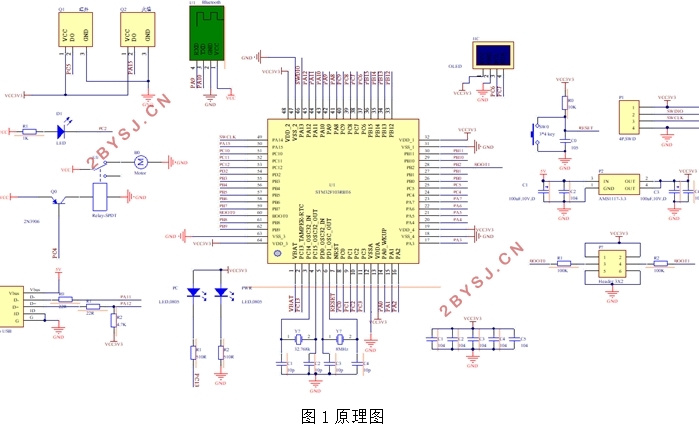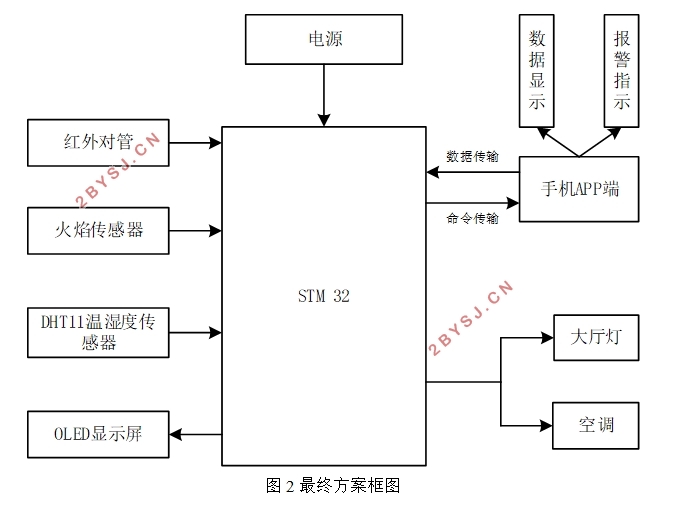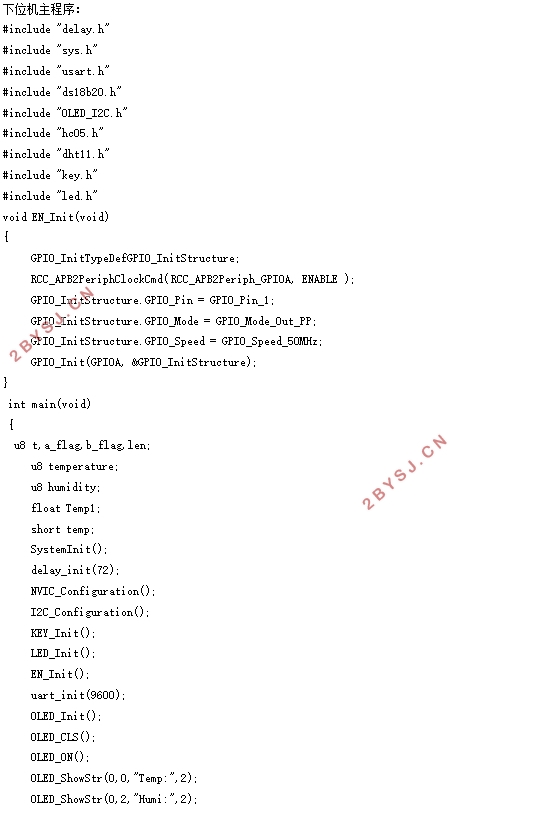基于STM32的智能家居监控系统设计
无需注册登录,支付后按照提示操作即可获取该资料.
基于STM32的智能家居监控系统设计(论文12000字,参考代码)
摘要:针对目前智能家居系统布线麻烦、生产与维护成本高、移动性差等缺点,给出了一种基于STM32单片机和无线蓝牙通信技术的设计与实现方案。基于蓝牙技术构建无线通信网络,采用了STM32最小系统最为硬件平台,并搭载Android技术设计移动控制端,利用手机或平板APP监控家居环境。实验结果表明,该系统具有布线简单、生产成本低、移动性好等优点,能够实现智能家居系统的本地无线监控,具有较大的使用价值。
关键词:智能家居;STM32;蓝牙;无线监控
Design of Monitoring System of Smart Home Based on STM32
Abstract :In view of the shortcomings of current smart home systems such as wiring troubles, high production and maintenance costs, and poor mobility, a design and implementation scheme based on STM32 microcontroller and wireless Bluetooth communication technology are presented. Building a wireless communication network based on Bluetooth technology, using the STM32 minimum system hardware platform, and equipped with Android technology to design the mobile control terminal, using a mobile phone or tablet APP to monitor the home environment. The experimental results show that the system has the advantages of simple wiring, low production cost and good mobility. It can realize the local wireless monitoring of smart home systems and has great use value.
Keywords: smart home; STM32; Bluetooth; wireless monitoring



目录
1 绪论 1
1.1 课题研究的背景与意义 1
1.2 国内外研究与发展现状 1
1.2.1 国外研究现状 1
1.2.2 国内研究现状 2
1.2.3 未来发展趋势 2
1.3 本课题研究的基本内容 3
2 系统总体方案设计 4
2.1 任务分析 4
2.2 方案设计 4
2.3 各模块选型 4
2.3.1 MCU选型 4
2.3.2 通信模块选型 5
2.3.3 检测模块选型 5
2.3.4 显示模块选型 6
2.4 最终方案与功能实现 6
3 下位机硬件设计 7
3.1 单片机最小系统模块 7
3.1.1 STM32F103RCT6简介 7
3.1.2 数据采集 8
3.2 通信模块 9
3.3 检测模块 9
3.3.1 温湿度检测模块 9
3.3.2 人体检测模块 10
3.3.3 火焰检测模块 11
4 系统软件设计 11
4.1 上位机软件设计 12
4.1.1 开发软件简介 12
4.1.2 APP界面设计 12
4.1.3 APP工作流程 13
4.2 下位机软件设计 13
4.2.1 DHT11温湿度传感器 14
4.2.2 显示模块 15
5 软硬件调试 16
5.1 上位机调试 16
5.2 下位机调试 17
5.2.1 HC-05蓝牙模块 17
5.2.2 DHT11 温湿度传感器 18
5.2.3 火焰传感器 19
5.2.4 人体传感器 20
6 总结与展望 20
6.1 总结 20
6.2 展望 20
参考文献 21
致谢 22
附录A 23
附录B 26
